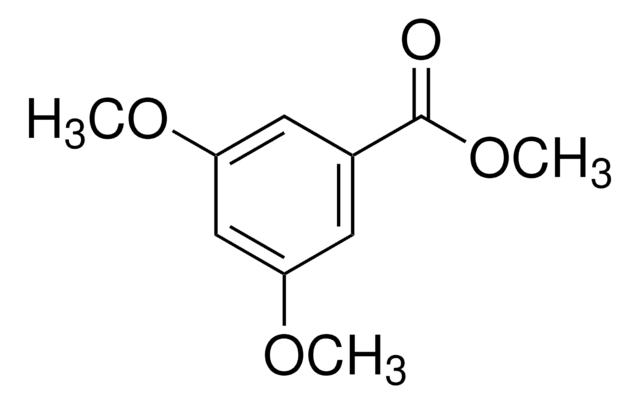172405
Tetraethylene glycol dimethyl ether
≥99%, cross-linking reagent click chemistry
Synonym(s):
2,5,8,11,14-Pentaoxapentadecane, Bis[2-(2-methoxyethoxy)ethyl] ether, Dimethoxytetraethylene glycol, Dimethyltetraglycol, Tetraglyme
About This Item
Recommended Products
product name
Tetraethylene glycol dimethyl ether, ≥99%
vapor density
7.7 (vs air)
vapor pressure
<0.01 mmHg ( 20 °C)
Assay
≥99%
≥99.0% (GC)
form
liquid
autoignition temp.
510 °F
reaction suitability
reagent type: cross-linking reagent
reaction type: click chemistry
impurities
≤1.0% Water (Karl Fischer)
≤50 ppm Trace peroxide (as H2O2)
refractive index
n20/D 1.432 (lit.)
bp
275-276 °C (lit.)
mp
−30 °C (lit.)
density
1.009 g/mL at 25 °C (lit.)
polymer architecture
shape: linear
functionality: homobifunctional
SMILES string
COCCOCCOCCOCCOC
InChI
1S/C10H22O5/c1-11-3-5-13-7-9-15-10-8-14-6-4-12-2/h3-10H2,1-2H3
InChI key
ZUHZGEOKBKGPSW-UHFFFAOYSA-N
Looking for similar products? Visit Product Comparison Guide
General description
Application
Legal Information
Signal Word
Danger
Hazard Statements
Precautionary Statements
Hazard Classifications
Repr. 1B
Supplementary Hazards
Storage Class Code
6.1C - Combustible acute toxic Cat.3 / toxic compounds or compounds which causing chronic effects
WGK
WGK 1
Flash Point(F)
276.8 °F - closed cup
Flash Point(C)
136 °C - closed cup
Personal Protective Equipment
Choose from one of the most recent versions:
Already Own This Product?
Find documentation for the products that you have recently purchased in the Document Library.
Customers Also Viewed
Our team of scientists has experience in all areas of research including Life Science, Material Science, Chemical Synthesis, Chromatography, Analytical and many others.
Contact Technical Service










